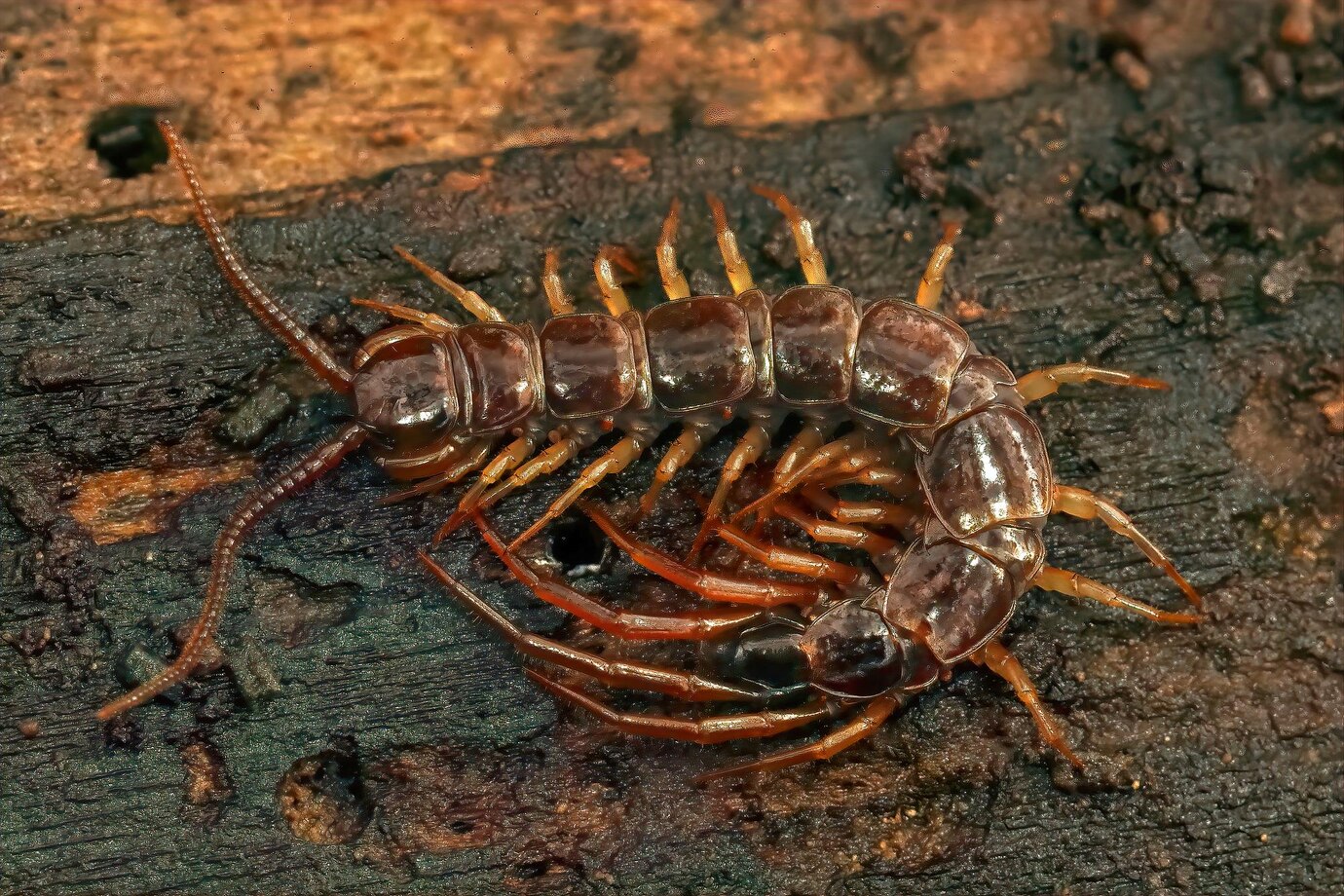Think Twice Before Squashing That House Centipede: Here’s Why
Spotting a bug racing across your floor can send a chill down your spine. Your first instinct might be to grab a shoe and end the encounter immediately. But before you act, it’s worth taking a moment to reconsider, especially when the unwelcome guest is a house centipede. Despite their unsettling appearance, house centipedes are far from the villains they’re made out to be. In fact, these critters are your home’s secret defenders against more harmful pests.
The Surprise Visitor: House Centipedes in Your Home
Encountering a house centipede can be startling. With their long legs and lightning-fast movements, they seem like something out of a nightmare. However, these creatures aren’t interested in scaring you. They’re natural-born hunters, and their favorite prey includes some of the most troublesome pests, like cockroaches, ants, and silverfish.
Unlike other insects that carry diseases or damage property, house centipedes are relatively clean. They don’t spread germs, contaminate food, or cause structural harm. Their sole focus is on hunting and eliminating the pests that pose a real threat to your home. If you spot one, it might actually be a sign that your house has an underlying pest problem—and the centipede is there to help manage it.
Nature’s Pest Control Squad
House centipedes are voracious predators, and their appetite for insects makes them an invaluable ally in pest control. Equipped with venomous claws, they immobilize and consume their prey quickly, targeting a wide range of pests that can damage property or carry diseases.
For example, if you’ve struggled with cockroaches, moths, or even bed bugs, house centipedes are doing you a favor by keeping those populations in check. Their ability to hunt efficiently means fewer infestations and less reliance on chemical pest control methods. In essence, they’re a free, eco-friendly alternative to sprays and traps.
Why You Should Let Them Stay
While it’s tempting to squash a centipede the moment you see one, there are good reasons to let them live. By killing a house centipede, you’re eliminating a natural predator that’s actively working to protect your home from far worse intruders. Without them, you might see an increase in the pests they hunt.
Instead of reaching for that shoe, consider gently guiding the centipede outside or leaving it alone. House centipedes are solitary and prefer to stay hidden, so encounters are rare. They thrive in damp, dark areas like basements and bathrooms but won’t linger where food or water sources are scarce.
Myths About Centipedes
House centipedes are often feared because of their appearance. Their long, segmented legs and darting movements make them seem aggressive, but they’re actually harmless to humans. While they have venom to subdue prey, their bites are rare and pose no real threat to people. Most centipedes will flee the moment they sense danger.
Unlike cockroaches or flies, centipedes don’t spread bacteria or invade food supplies. They don’t chew through walls or furniture. Their role is simple: hunt, eat, and retreat to their hiding spots.
The Bigger Pest Picture
If you’re not convinced about keeping centipedes around, it’s worth considering the pests they help manage. For instance:
- Cockroaches carry bacteria and can trigger allergies.
- Termites cause billions of dollars in property damage annually.
- Mosquitoes spread diseases like malaria and dengue.
- Bed bugs make your home a nightmare with their itchy bites.
Compared to these pests, house centipedes are practically heroes.
How to Coexist with Centipedes
If the idea of sharing your home with a centipede still gives you pause, there are ways to coexist peacefully:
- Seal Entry Points: Use caulk to close cracks and gaps around windows, doors, and foundations to prevent pests from entering your home.
- Reduce Moisture: Centipedes thrive in damp environments. Fix leaks and use dehumidifiers in basements and bathrooms.
- Eliminate Clutter: Clear away boxes, papers, and other items that pests (and centipedes) might use as hiding spots.
- Clean Regularly: Vacuum and dust to reduce the insects that attract centipedes in the first place.
These steps not only minimize centipede sightings but also address the root causes of pest problems in your home.
Rethinking the Shoe
House centipedes may not be pretty, but they play an important role in keeping your home pest-free. The next time you see one darting across the floor, pause before acting on impulse. Consider the silent work they’re doing to keep harmful pests at bay.
By understanding their role and the benefits they bring, you might find it easier to coexist with these misunderstood creatures. Who knows? You may even begin to appreciate their quiet, tireless efforts to make your home a safer, more comfortable place.

Lila Hart is a dedicated Digital Archivist and Research Specialist with a keen eye for preserving and curating meaningful content. At TheArchivists, she specializes in organizing and managing digital archives, ensuring that valuable stories and historical moments are accessible for generations to come.
Lila earned her degree in History and Archival Studies from the University of Edinburgh, where she cultivated her passion for documenting the past and preserving cultural heritage. Her expertise lies in combining traditional archival techniques with modern digital tools, allowing her to create comprehensive and engaging collections that resonate with audiences worldwide.
At TheArchivists, Lila is known for her meticulous attention to detail and her ability to uncover hidden gems within extensive archives. Her work is praised for its depth, authenticity, and contribution to the preservation of knowledge in the digital age.
Driven by a commitment to preserving stories that matter, Lila is passionate about exploring the intersection of history and technology. Her goal is to ensure that every piece of content she handles reflects the richness of human experiences and remains a source of inspiration for years to come.
